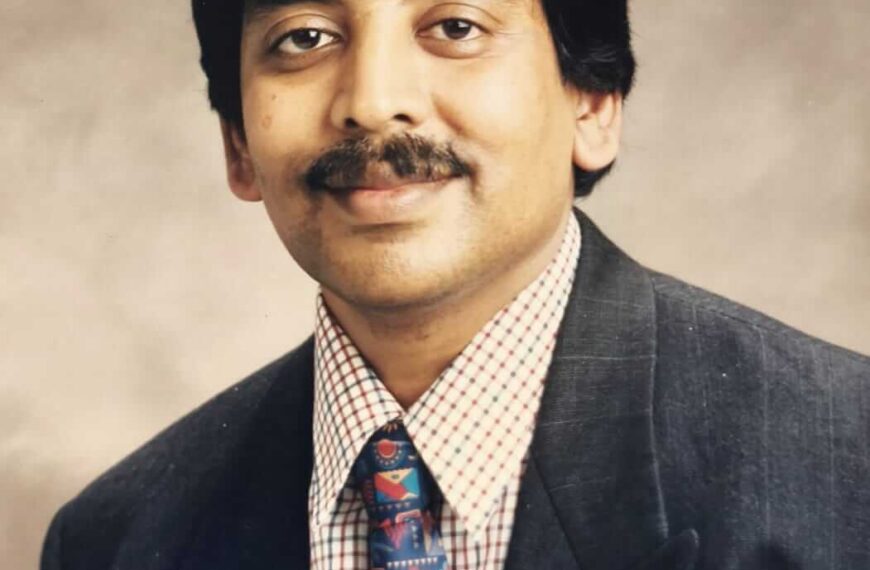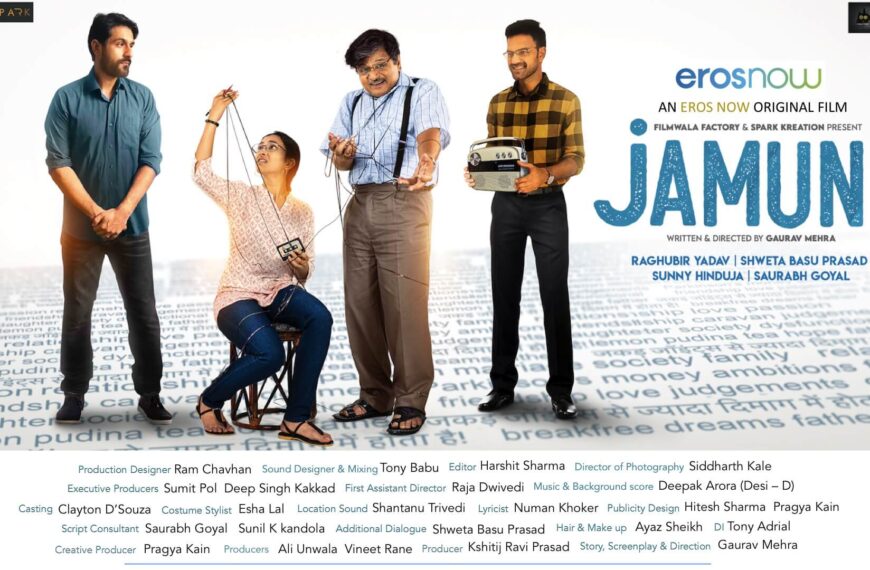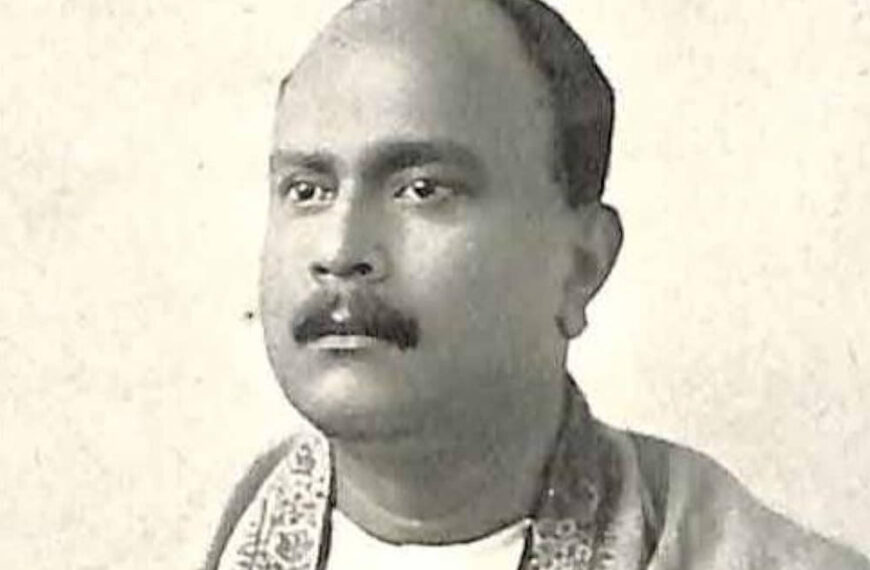Here’s an exclusive interview, by Mahima, of the independent writer-director Tarun Jain whose short film, Amma Meri, has got the honour to be screened at the IFFI, Goa. A thought-provoking film on how aging elders of the family are pushed to the margins. Read more in the weekly column, exclusively in Different Truths.
Mother is the pivot of our being and existence.
Mother is the epitome of all emotions.
But when it comes to adverse circumstances, do we really treat the mother in a respectful and caring manner – the way this epitome of love deserves to be treated?
 The short film Amma Meri (My Mother) exposes some of the darkest emotions of human beings driven by extreme circumstances. The film, in fact, is a question mark on the modern society driven by greed. It forgets the sacrifices made by mother – be it our mortal mother or the Mother Earth.
The short film Amma Meri (My Mother) exposes some of the darkest emotions of human beings driven by extreme circumstances. The film, in fact, is a question mark on the modern society driven by greed. It forgets the sacrifices made by mother – be it our mortal mother or the Mother Earth.
The film is the dilemma of a middle-aged farmer, Balram, who is going through an agrarian crisis. His daughter Rashmi is of a marriageable age, but he doesn’t have money for her wedding. Struggling for money, he happens to know through a bank agent that certain deposits his deceased father made before his death, will be his inheritance only after his Amma’s (mother’s) death. Capturing a tough socio-economic life, that too with limited dialogues, Amma Meri brings out the darkest of the emotions.
The film’s climax leaves your senses numb. No wonder the film has made it to the ongoing India International Film Festival (IFFI) being held in Goa. It will be screened under the Indian Panorama’s non-feature category.
Here’s my interaction with Tarun Jain, a promising writer and an independent director of Amma Meri. Tarun’s debut directorial venture, Akhir, had won six International Awards. He has high hopes for Amma Meri as well.
![]() Mahima: Reality-based cinema in a time when fiction sells best. How did the idea of doing this film come to you?
Mahima: Reality-based cinema in a time when fiction sells best. How did the idea of doing this film come to you?
![]() Tarun: I have been constantly traveling to parts of Uttar Pradesh and Haryana and become quite close to the culture, the background, the issues of people, the societal pressure, the importance of farming and this is where the idea of doing this film first occurred. While some celebrate fiction, it becomes the responsibility of a few of us to bring to fore the bitter reality, a lesson for the masses.
Tarun: I have been constantly traveling to parts of Uttar Pradesh and Haryana and become quite close to the culture, the background, the issues of people, the societal pressure, the importance of farming and this is where the idea of doing this film first occurred. While some celebrate fiction, it becomes the responsibility of a few of us to bring to fore the bitter reality, a lesson for the masses.
![]() Mahima: Most of the film is without dialogues. Why?
Mahima: Most of the film is without dialogues. Why?
![]() Tarun: To create a depth in the film, we have tried to use most of the ambient sound, which was available and gave very few dialogues to the actors. I believe it adds to their performance when one tries to impersonate a situation without much use of words; in an emotional film like this expressions encapsulate the situation better than words.
Tarun: To create a depth in the film, we have tried to use most of the ambient sound, which was available and gave very few dialogues to the actors. I believe it adds to their performance when one tries to impersonate a situation without much use of words; in an emotional film like this expressions encapsulate the situation better than words.
![]() Mahima: Describe the experience of working with the lead cast of the film.
Mahima: Describe the experience of working with the lead cast of the film.
- Amma was played by Devki Rani. She had acted in a few videos earlier. To see her perform with so much of enthusiasm at this age was very much encouraging for the whole crew. Given her age, she was very active and was very keen on improvising every scene wherever necessary. It would have been hard to pull the climax scene, which was shot on the highway. But, with her vibrant energy, she made it quite easy for us to pull it. She was fabulous.
- Anurag Arora, who played the lead cast Balram is a complete director’s actor. I had to just give him a situation and he came out with the best expressions. What else can a director ask for!
- Rashmi (Balram’s daughter) enacted by Diksha Lamba stands out both as a convincing lover as well as the rebel, giving the twist to the tale at the end.
![]() Mahima: Where all is Amma Meri traveling?
Mahima: Where all is Amma Meri traveling?
Tarun: Amma has just begun her journey. It opened with International Documentary and Short Film Festival of Kerala. And now, it is being screened at the International Film Festival of India (IFFI), the most prestigious film festival in India and a leading one in the world. I would definitely like to explore the European festival circuits as there are so many avenues and a lot of exposure for short filmmakers.
![]() Mahima: A strong film has bigger struggles behind it. What were yours?
Mahima: A strong film has bigger struggles behind it. What were yours?
Tarun: Like any work, this too had its share of struggles. The most significant would be the time it took to be made. We were ready with a cut at the end of 2015. If I wanted I could have stopped there and started working on my next project. But, I took time to dig deeper into it to bring out the best over two years. The second aspect of struggle is the fact that in terms of short films in India, we still have a long way to go. Amma Meri was solely made with my own money. I had to manage everything on my own.
![]() Mahima: Where and when are you releasing the film to be watched by the common man?
Mahima: Where and when are you releasing the film to be watched by the common man?
![]() Tarun: It will take some more time since releasing it online will bar us from screening it at film festivals. Amma Meri is a special film and I would really want it to reach every part of the world. As for the Indian audience, it is being at the IFFI, Goa. So, I would like to invite you all to come and join us for the screening.
Tarun: It will take some more time since releasing it online will bar us from screening it at film festivals. Amma Meri is a special film and I would really want it to reach every part of the world. As for the Indian audience, it is being at the IFFI, Goa. So, I would like to invite you all to come and join us for the screening.
![]() Mahima: Do you think films like Amma Meri will invoke the government to do justice to the suffering farmers?
Mahima: Do you think films like Amma Meri will invoke the government to do justice to the suffering farmers?
![]() Tarun: Agrarian crises is a very complex term. For everything, we cannot just blame the government. We also have to think as a society, as a farmer why things are not working in our favour. What can come from the government is information. I think most of us become dysfunctional because we are uninformed or misinformed. It is important to be aware of things around us. So it has to be a joint effort.
Tarun: Agrarian crises is a very complex term. For everything, we cannot just blame the government. We also have to think as a society, as a farmer why things are not working in our favour. What can come from the government is information. I think most of us become dysfunctional because we are uninformed or misinformed. It is important to be aware of things around us. So it has to be a joint effort.
![]() Mahima: So you think the agrarian crisis is due to lack of information. Then, what steps do you think the government must take?
Mahima: So you think the agrarian crisis is due to lack of information. Then, what steps do you think the government must take?
![]() Tarun: Honestly, I am nobody to advise. But given the situation, I think one advice would be we should start thinking about agrarian crisis very seriously and take the farmers’ opinion into consideration. It is important to understand their pain, levels of education, concerns and their plight, their needs and wants.
Tarun: Honestly, I am nobody to advise. But given the situation, I think one advice would be we should start thinking about agrarian crisis very seriously and take the farmers’ opinion into consideration. It is important to understand their pain, levels of education, concerns and their plight, their needs and wants.
And Tarun leaves me engrossed in my thoughts about a different truth of the society: a man doesn’t think twice about spending crores on his daughter’s wedding. On the other hand, another is waiting for his mother to die so that deposits in her name might come to his purse to meet his family needs. A brutal truth!
Amma Meri was given a special mention in the ‘Hot Films in the Making’ list during a pitch session by a US-based production company.
All I can do is hope that the silent, heart-wrenching cry of Amma Meri reaches the ears of the policymakers of the country to meet the needs of our debt-ridden, dying farmers and dying farming.
Best wishes to Amma Meri from all of us in Different Truths.
Check the trailer of the AMMA MERI on YouTube:
© Mahima Sharma
Photos sourced by the author from the filmmaker
#FlameOnIce #AmmaMeri #IFFI2017 #FarmerCrisis #AgrarianCrisis #ShortFilm #GoaFilmFestival2017 #AgriculturePolicy #DifferentTruths





 By
By
 By
By
 By
By